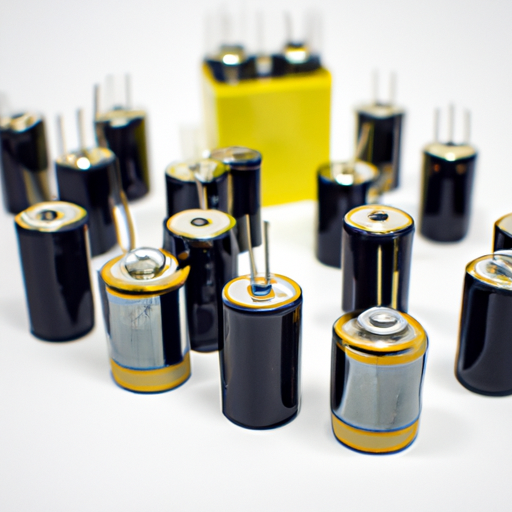Super capacitors, also known as ultracapacitors or electric double-layer capacitors, are energy storage devices that have gained popularity in recent years due to their high power density, fast charging and discharging capabilities, and long cycle life. These devices are used in a wide range of applications, from consumer electronics to renewable energy systems.

One of the key product standards for super capacitors is the IEC 62391 standard, which provides guidelines for the testing and performance of electric double-layer capacitors. This standard covers parameters such as capacitance, equivalent series resistance (ESR), leakage current, and self-discharge rate, and sets limits for these parameters to ensure the quality and reliability of the super capacitor.
Another important product standard for super capacitors is the UL 810A standard, which covers safety requirements for electric double-layer capacitors. This standard specifies requirements for insulation, overcurrent protection, and temperature limits, among other things, to ensure that super capacitors are safe to use in various applications.
In addition to these standards, there are also industry-specific standards that apply to super capacitors used in specific applications. For example, super capacitors used in automotive applications must meet the requirements of the AEC-Q200 standard, which covers the testing and performance of electronic components used in automotive systems.
Overall, adherence to product standards is essential for ensuring the quality, reliability, and safety of super capacitors. By following these standards, manufacturers can produce super capacitors that meet the requirements of their intended applications and provide reliable performance over their operational lifetime.
In conclusion, super capacitors are versatile energy storage devices that offer high power density, fast charging and discharging capabilities, and long cycle life. In order to ensure the quality and performance of these devices, manufacturers must adhere to product standards that cover various aspects of design, manufacturing, testing, and performance. By following these standards, manufacturers can produce super capacitors that meet the requirements of their intended applications and provide reliable performance for a wide range of industries.
Super capacitors, also known as ultracapacitors or electric double-layer capacitors, are energy storage devices that have gained popularity in recent years due to their high power density, fast charging and discharging capabilities, and long cycle life. These devices are used in a wide range of applications, from consumer electronics to renewable energy systems.

One of the key product standards for super capacitors is the IEC 62391 standard, which provides guidelines for the testing and performance of electric double-layer capacitors. This standard covers parameters such as capacitance, equivalent series resistance (ESR), leakage current, and self-discharge rate, and sets limits for these parameters to ensure the quality and reliability of the super capacitor.
Another important product standard for super capacitors is the UL 810A standard, which covers safety requirements for electric double-layer capacitors. This standard specifies requirements for insulation, overcurrent protection, and temperature limits, among other things, to ensure that super capacitors are safe to use in various applications.
In addition to these standards, there are also industry-specific standards that apply to super capacitors used in specific applications. For example, super capacitors used in automotive applications must meet the requirements of the AEC-Q200 standard, which covers the testing and performance of electronic components used in automotive systems.
Overall, adherence to product standards is essential for ensuring the quality, reliability, and safety of super capacitors. By following these standards, manufacturers can produce super capacitors that meet the requirements of their intended applications and provide reliable performance over their operational lifetime.
In conclusion, super capacitors are versatile energy storage devices that offer high power density, fast charging and discharging capabilities, and long cycle life. In order to ensure the quality and performance of these devices, manufacturers must adhere to product standards that cover various aspects of design, manufacturing, testing, and performance. By following these standards, manufacturers can produce super capacitors that meet the requirements of their intended applications and provide reliable performance for a wide range of industries.